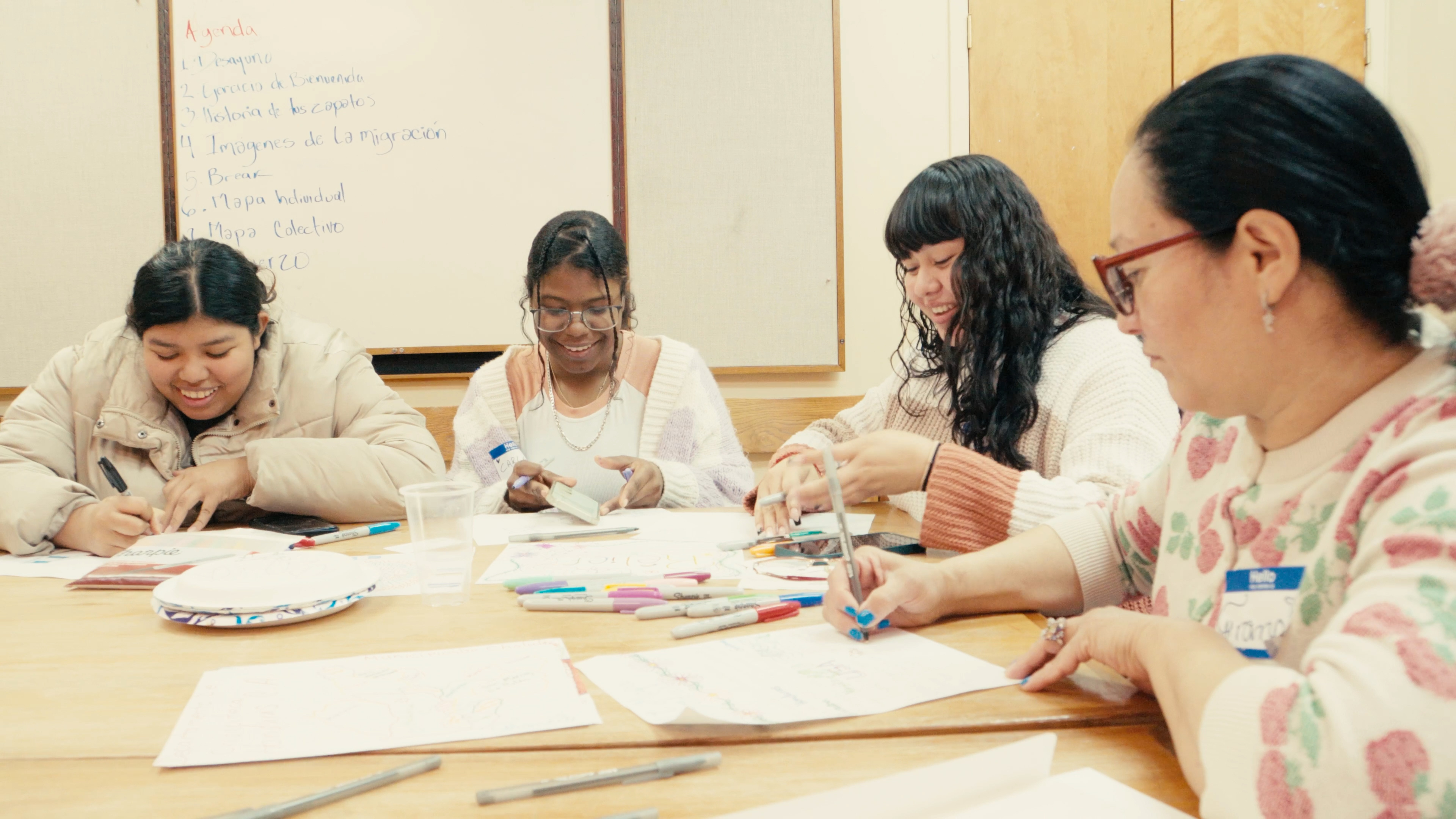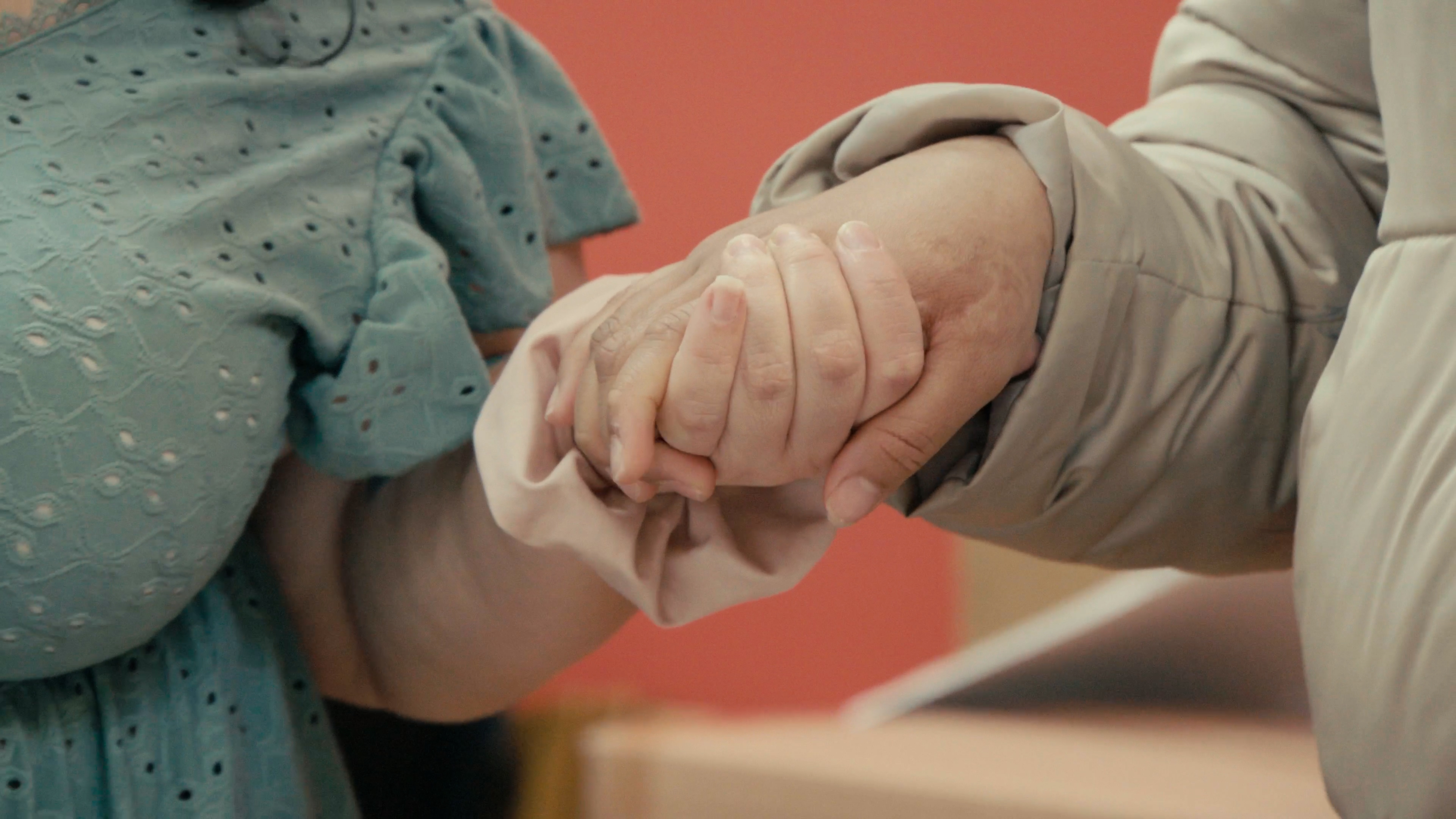
A TRACES storytelling workshop in New Jersey.
Imagine trying to rebuild your life in a different country. Each day brings new challenges and opportunities. That’s the experience faced by thousands of immigrants worldwide every single day. Migrants encounter overwhelming obstacles in building a brighter future for themselves and their families—whether in their new countries or during their arduous journeys.
But these migrant experiences are rarely ever told. Their stories of struggle and resilience are overshadowed by harmful narratives perpetuated by politicians and the media. These narratives attempt to dehumanize individuals. They reduce migration to a political issue. And they fail to honor the bravery, selflessness, and unwavering optimism of countless individuals worldwide who overcome the greatest odds.
That’s why AFSC created the project TRACES: The Cartographic Storytelling of Migration and Deportation. Rooted in our Quaker belief in the inherent worth and dignity of every person, TRACES gives light to those untold stories. It provides a platform for immigrants to share their powerful experiences with the public. These voices include asylum seekers, survivors of violence, people in their return countries, activists, domestic workers, students, people in detention, and refugees around the world.
Since February 2024, AFSC has conducted storytelling workshops in New Jersey, Jordan, El Salvador, Mexico, Guatemala, and other countries as part of our TRACES project. So far, we have engaged at least 50 immigrants from diverse backgrounds in sharing their stories—their reasons for leaving their home countries, the challenges they faced in their journeys, and their hopes for the future.
These workshops have shown how storytelling can fuel social change. Marshall Ganz, a key leader in grassroots organizing, has said that narratives are the art of creating emotions that translate values into actions. This is what TRACES strives to achieve. By helping immigrants reclaim their individual power over their own stories, we're creating emotional connections to help shift public perception and drive systemic change.
The power of social cartography

A scene from a video featured in our TRACES project.
TRACES uses an innovative methodology known as social cartography. This approach goes beyond traditional storytelling. It conveys information in a dynamic, visual way through mapping. Social cartography helps identify how people relate to the environment and the interactions that shape their experiences in that context.
This methodology has proven effective at strengthening larger community organizing and advocacy efforts. It builds connections between different groups and helps individuals become more active in organizing and advocacy work. At the same time, it helps communities recognize their shared experiences and environment, allowing participants to express what they've lived through using stories and symbols.
Through this approach, TRACES is a form of narrative resistance. It allows people to produce artistic representations of their identity, their heritages, and their challenges. The result is a powerful visual map of interwoven stories and oppressive systems faced by migrants in their journeys. The map challenges our perceptions of the borders that divide us. It compels us to see the world through the eyes of those who have crossed them.
Sharing the stories

This month, AFSC is launching a website that features the dozens of stories we have collected through the TRACES project. By sharing these personal accounts with a global audience, we hope to shift public perception, inform policy discussions, and move people to support immigrant rights.
TRACES features a range of stories that give visitors a sense of the breadth of migrants' experiences. We hear from two sisters who braved harsh desert terrain as children and are now DACA recipients. We also meet a mother and daughter who fled El Salvador to escape brutal gang violence, only to be detained and separated by cruel U.S. immigration policies.
Another TRACES participant shared his treacherous journey through the Darién Gap. When you hear from someone who has journeyed across more than 15 countries over what is considered perhaps the most extremely dangerous border in the world, you can begin to understand the resilience and character of migrants around the globe.
As we share these powerful stories, we are reminded of the profound impact of personal narratives. We carry them in our hearts, where they remind us of who we are and where we come from—even when we’re physically far from there.
Through TRACES, we see how goals and dreams can create a sense of belonging in places that often feel unwelcoming to immigrants. Our stories have converged here, in the TRACES project, and in the communities we’re creating together.
This work reflects AFSC’s vision of a future where all people are welcome, where migration is a choice rather than a necessity, and where immigrants are celebrated for making our communities stronger.
We invite you to join us in honoring our diversity and building societies that we'd all be proud to call home. Let’s keep working for a world where every story is heard, every journey is respected, and every person is welcomed.